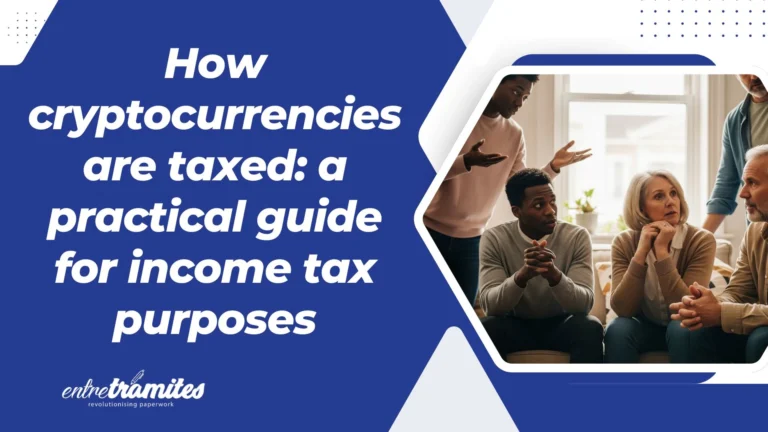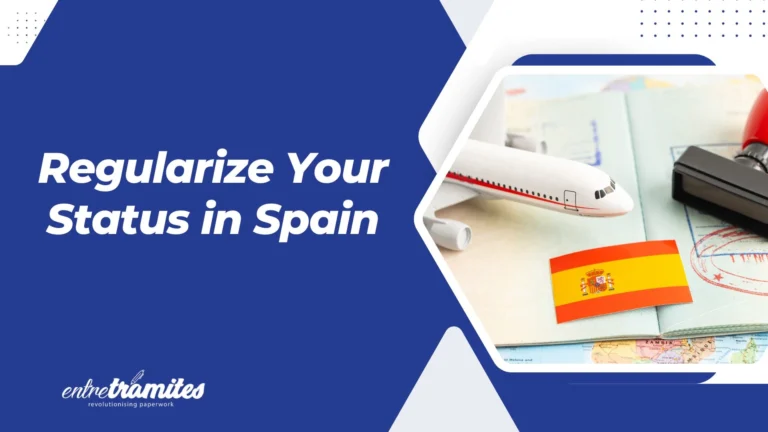How Does Cryptocurrency Taxation Work in Spain?
With over 5 million Spaniards (12%) owning crypto, according to Statista, taxation has become a top priority for the Spanish Tax Agency (Agencia Tributaria).
Cryptocurrencies are treated as capital gains or losses under the Personal Income Tax (IRPF) whenever they are sold, exchanged, or transferred.
Income Tax (IRPF) and Cryptocurrencies
For the 2024 tax year, crypto profits are included in the savings base with these rates:
- 19% up to €6,000
- 21% up to €50,000
- 23% up to €200,000
- 27% up to €300,000
- 28% over €300,001
Example:
Buying Bitcoin at €5,000 and selling at €8,000 generates a €3,000 gain, taxed under these brackets.
Losses (e.g. €2,000 lost with Ethereum) can be offset against other capital gains or even financial yields in the following years.
Wealth Tax and Cryptocurrencies
If your net assets exceed the regional exemption threshold or €2,000,000 nationally, you must include cryptocurrencies in your Wealth Tax return (Modelo 714).
- Assets are valued at 31 December, based on official or market average prices.
- Since 2024, Section Q of Modelo 714 was dedicated to declaring crypto balances.
Modelo 721: Cryptocurrencies Abroad
From 2024, crypto investors with over €50,000 in assets abroad must file Modelo 721 between 1 January and 31 March of the following year.
Key points:
- It applies to coins, stablecoins, and tokens.
- It covers both hot wallets and cold wallets if custody is by a foreign provider.
- It is informative only, but failing to file can trigger fines starting at €10,000.
VAT and Cryptocurrencies
Cryptocurrency transactions (buying, selling, or exchanging) are exempt from VAT, since they are considered virtual currencies with exchange value.
Donations and Inheritance
- Donations of cryptocurrencies are taxed under the Inheritance and Gift Tax, with rates from 7.65% to 34%, depending on region and amount.
- Inheritances involving crypto must also be declared in this tax.
Risks of Not Declaring Cryptocurrencies
- Fines of up to 150% of unpaid tax.
- Minimum €10,000 penalties for not filing Modelo 721.
- Additional surcharges for late declarations.
The EU’s DAC8 directive and Spain’s adoption of DAC7 increase cross-border reporting, making undeclared crypto more visible than ever.
If you need help with cryptocurrency taxation, at Entre Trámites we provide expert advice for investors, freelancers, and SMEs. You can contact us here, schedule a free consultation, or message us on WhatsApp.
Frequently Asked Questions
Do I need to declare cryptocurrencies I haven’t sold?
Not in IRPF, unless holdings abroad exceed €50,000 (Modelo 721), or you must include them in Wealth Tax.
Can I offset crypto losses against other gains?
Yes. Losses can be offset against capital gains and, within limits, financial yields.
Do I need to declare all my cryptocurrencies?
- In IRPF: only operations generating gains or losses.
- In Wealth Tax: all crypto if you exceed thresholds.
- In Modelo 721: holdings abroad above €50,000.
Understanding cryptocurrency taxation in Spain is essential for anyone investing in digital assets. With stronger reporting obligations and penalties, compliance not only avoids risks but also ensures you can optimise your tax position legally.
You can also contact us directly through this contact Form for us to call you, or if you prefer, you can schedule a free consultation or write to us on WhatsApp. We’re here to make the process easier for you!.





